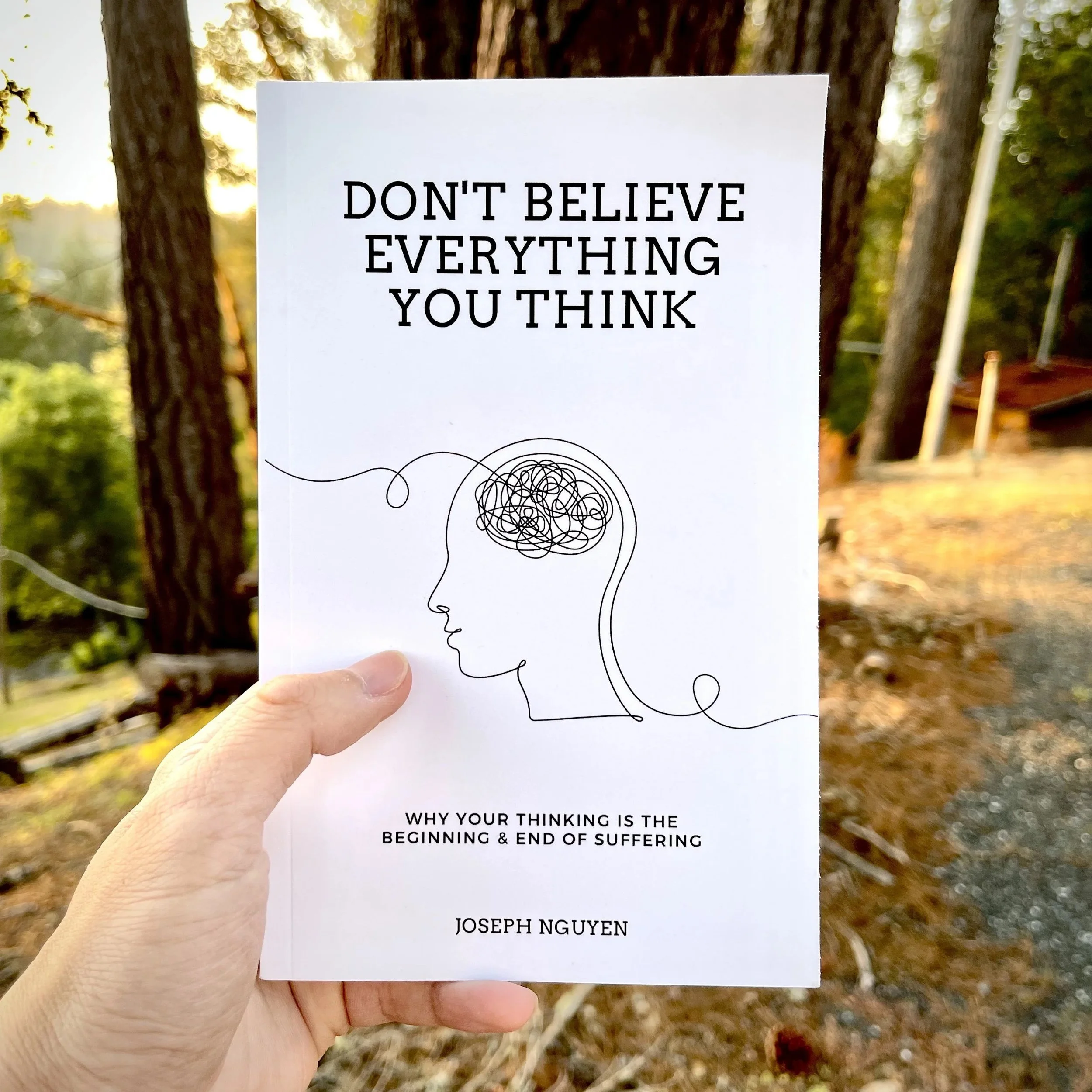Resources
Our Current Favourite
Don't Believe Everything You Think: Why Your Thinking Is the Beginning and End of Suffering
by Joseph Nguyen
Nguyen provides a framework for recognizing and disentangling from unhelpful thoughts, fostering emotional intelligence and self-awareness. For leaders, this practice is transformative: it enables them to respond to challenges with equanimity, make clearer decisions, and lead with authenticity.
The book emphasizes that by shifting how we perceive and interact with our thoughts, we can unlock greater creativity, resilience, and connection—qualities that are essential for leadership in today’s complex environments. Don't Believe Everything You Think is a must-read for leaders who want to transcend mental barriers and inspire others with calm, centered, and insightful leadership.
Resource Library
Explore our recommended resources to inspire and guide you in life and leadership.
-

Coaching for Performance
John Whitmore
-

Trust & Inspire
Stephen M.R. Covey
-

The Neuroscience of Leadership
Tara Swart
-

Working Identity: Unconventional Strategies for Reinventing Your Career
Herminia Ibarra
-

The Revolutionary Power of Diverse Thought
Elif Shafak
-

How To Turn A Group of Strangers Into A Team
Amy Edmondson
-

Dangerous Times Call for Dangerous Women
Pat Mitchell
-

The Power of Introverts
Susan Cain
-

International Coaching Federation
-

Institute of Coaching
-

The Coaches Training Institute
-

The European Mentoring and Coaching Council
-

The McKinsey Podcast
-

Eckard Tolle: Essential Teachings
-

HBR On Leadership
-

Dare to Lead

